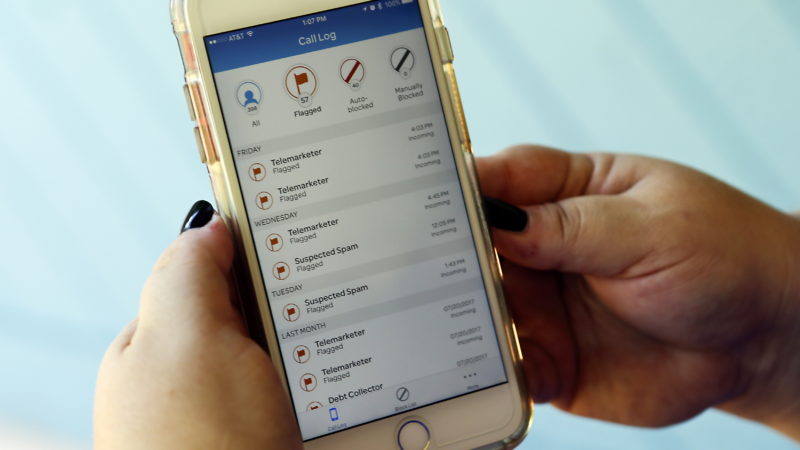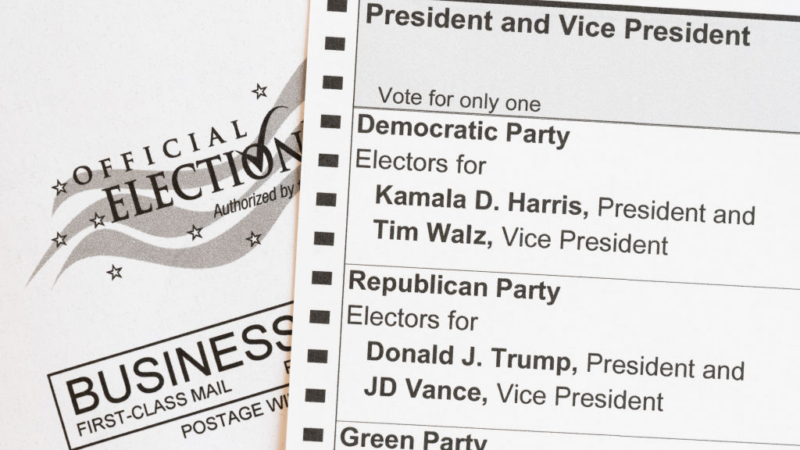Opinion: Political texts are pinging off the rails
Ping! It’s Nancy Pelosi. Ping! Now it’s JD Vance. Ping! Now it’s someone running for Congress somewhere who says my contribution in the next five minutes could be the last chance for civilization. Let me think. Ping!
I’ve been getting a lot of text messages from politicians asking for money. Perhaps you have, too.
Alex Quilici of the call-blocking service YouMail told us there may be a billion — yes, billion with a “B” — political text messages sent out each week leading up to the election. Many of them claim to be a personal appeal from a well-known politician.
“Text messages are quite cheap,” explains Professor Michael Kang, who studies campaign finance at Northwestern University Law School. “Even a very low yield from text messaging can be cost effective.”
You might think, “Wait! I never gave Ted Cruz, Elise Stefanik, or Cory Booker my number! Why are they texting me?”
But you probably have given your mobile number to many different companies, for many different reasons. Marketers buy those numbers by the millions. Did you think when they asked you to check an “I agree” box to order that pair of shoes, those cookies they mentioned were Chips Ahoy?
I wondered how it is that I get text messages from politicians, left, right, and center, who wouldn’t seem to inhabit the same algorithm. Kang says that though you might consider yourself, say, a political conservative, you could drive a car, or prefer a brand of beer or toothpaste statistically favored by progressives. Or vice versa.
“There’s no penalty from politicians being over-inclusive,” says the professor, “other than annoying some recipients who aren’t sympathetic to them anyway.”
And he says the more money campaigns raise, the more they’ll keep fundraising.
“Election campaigns are arms races,” explains Professor Kang, “They’ll just find more ways to spend the money.”
And he adds there’s not much to curb the tide of political text messages. They’re free speech, protected by the First Amendment.
But I wonder, why not let people reply directly to the politicians who send messages to us?
We could bring them some of our most urgent cash requests. “Senator, a gallon of milk is up to $3. The cost of peanut butter, lettuce, and apples is up, too. Give me your credit card number now. I got a vote here, you know!”
Can someone find out who you voted for? No. Here is what you should know
As Election Day approaches, many Americans are questioning the secrecy of their ballots. We explain what you should know about privacy and casting a ballot.
Why Massachusetts loves Nibi the beaver and is fighting to keep her out of the wild
For the past several weeks, the beloved beaver has been embroiled in a court battle over whether she should return to the wild or stay at the rescue center where she has lived since she was a newborn.
A controversial but effective treatment for meth addiction gains ground
Policymakers in California embrace a proven but unorthodox treatment for meth and cocaine addiction: Give people gift cards to stay off the drugs.
The Menendez brothers’ murder case is getting a fresh look. Here’s why
In 1996, Erik and Lyle Menendez were convicted and sentenced to life in prison without the possibility of parole. Los Angeles prosecutors said this week they are taking another look at the case.
The tricky etiquette of parenting in public
Your little one is having a meltdown at the park. Everyone is looking at you. What do you do? A psychologist offers parents advice on how to help their kid (and themselves) navigate the chaos.
A coal power plant demolition serves as a poignant historical moment for the Navajo
For six decades, coal has provided for — and polluted — the Navajo Nation. Demolition of a power plant brings mixed emotions.







